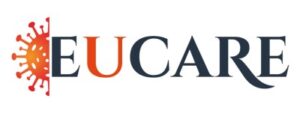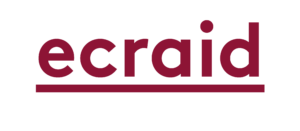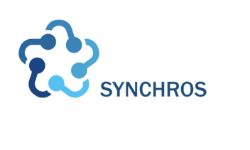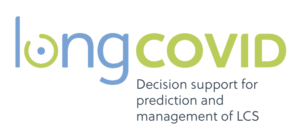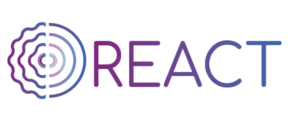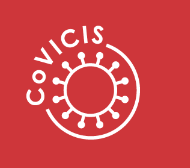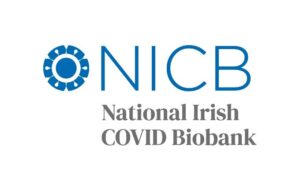EuCARE is a member of the Cohort Coordination Board (CCB). The CCB groups the existing COVID-19 cohort projects. The purpose is to establish a structured collaboration among cohort-based research projects and other relevant initiatives. It has been set up after the meeting organised on 2.2.2022 by the European Commission.
Main objectives:
- Provide an update on the status of ongoing cohort studies, including early results and final outcomes;
- Avoid overlapping and duplication of efforts (not just in cohort research but also in the creation of tools and infrastructures);
- Combine forces to achieve better results (e.g. larger sample sizes, stronger powered results, and wider dissemination);
- Share approaches to overcome common encountered obstacles (e.g. shipment of samples across national borders, lack of common dictionaries, electronic tool to link anonymous patient IDs to multiple samples and WPs);
- Organize training activities for best practices within sub-working groups of interest;
- Share documents of relevance for cohorts and with a view to greater harmonization (DPMs, Data Sharing Agreements, Material Sharing Agreements, Informed Consent);
- Make recommendations to the European Commission for future research in this area;.
- Support the CoMeCT Coordination Board by providing input from cohort-based research.
The CCB includes, other than European Commission representatives, all the EU-funded projects conducting COVID-19 cohort-based research and other relevant initiatives such as the European COVID-19 Data Platform, partners from industry and other stakeholders (e.g. EMA, ECDC, HaDEA). The board is organized in two levels, namely with a core group and extended group who is invited to participate as the need arises and according to the topic of discussion.
Since its foundation, the CCB has increased its areas of intervention. All funded projects are progressively included and presented in their main objectives and activities. Regular updates are provided by each one about the interim progress, cohorts and publications. Studies Protocols and study proposals are been discussed; possible clustering activities are identified for relevant local or international events.
EuCARE participates in all the activities of the CCB. In particular, it actively contributes to the CCB working groups:
- Working Group on epidemiological analyses and methodology when setting up observational studies in Pandemic time
- Working Group on Long COVID
- Working Group on Cohort and Randomized Controlled Trials Coordination for COVID-19 Response
- Working Group on the role of cohorts in pandemic preparedness
- Working Group for Prioritisation of Variables and Pathogens
The CCB is involved in and funded by the COMECT project (COordination MEchanism for Cohorts and Trials), started on 1st December 2023. COMECT is led by the Norwegian Institute of Public Health and will strengthen existing networks and infrastructure. These include EU-funded coordination mechanisms and networks, namely the Trial Coordination Board (TCB), Joint Access Advisory Mechanism (JAAM), the Cohort Coordination Board (CCB), and the Ecraid Coordinating Committee]
Projects involved in the Cohort Coordination Board
EuCARE answers to an emergency call from the European Union, in the frame of the Horizon Europe programme, to confront the COVID-19 epidemics and in particular the newly emerging SARS-COV-2 variants under several aspects.
The support of strong immuno-virological and artificial intelligence components, the project will take advantage of large hospital patients, vaccinated healthcare workers, and schools’ cohorts in Europe, Kenya, Mexico and Brazil to find an answer to urgent issues related to science and society.
EuCARE is funded by the European Union.
The European Clinical Research Alliance on Infectious Diseases (Ecraid) has the purpose to reduce the impact of infectious diseases on individual and population health.
The emergence and spread of antimicrobial resistance and the (re)emergence of new pathogens, such as SARS-COV-2 causing the COVID-19 pandemic, has further increased mortality and morbidity.
This is a not-for-profit foundation headquartered in Utrecht, The Netherlands.
Employs a Management Board, a central operational service, and central support staff.
END-VOC is a project that supports the global response to COVID-19 and future pandemics by investigating the circulation and impact of current and emerging SARS-CoV-2 variants of concern (VOC). To do so, data from well-established patient and population cohorts across the world is being used.
Data is collected from 28 cohorts in 23 countries.
END-VOC is funded by the European Union.
CONTAGIO (COhorts Network To be Activated Globally In Outbreaks) is a consortium of 18 partners institutions from Europe, North America, Latin America, Asia, and Africa.
This project aims to create coordination mechanisms to rapidly react to infectious disease (re-)emergence in low- and middle-income countries.
The Consortium builds on the experience acquired through other EC-funded projects ReCoDiD, ORCHESTRA, ZIKAlliance, and IDAMS and is coordinated by Heidelberg University Hospital, University of Colorado School of Public Health.
SYNCHROS (SYNergies for Cohorts in Health: integrating the Role of all Stakeholders) has the aim to create a sustainable European strategy for the development of a next generation of integrated cohorts population, patient and clinical trial cohorts.
SYNCHROS focus is to address the practical, ethical and legal, and the methodological challenges to optimising the exploitation of current and future cohort data, map the cohort landscape in Europe and large international initiatives, identify the best methods for integrating cohort data, identify solutions for addressing practical, ethical and legal challenges in integrating data across patient, clinical trial and population cohorts, and evaluate the use of emerging and new data collection technologies and types of data.
SYNCHROS is funded by the EU Framework Programme for Research and Innovation.
ORCHESTRA is an international research project with the aim of tackling the coronavirus pandemic by providing an innovative approach to learn from the SARS-CoV-2 pandemic and derive recommendations for the management of COVID-19 and to be prepared for possible future pandemics. The project builds upon existing and new large scale population cohorts in Europe and non-European countries.
The ORCHESTRA is led by the University of Verona and involves 26 partners from 15 countries: Argentina, Belgium, Brazil, Congo, France, Gabon, Germany, India, Italy, Luxembourg, Netherlands, Romania, Slovakia, Spain, Venezuela.
ORCHESTRA is funded by the European Union’s Horizon 2020 research and innovation programme.
VACCELERATE is a clinical research network for the coordination and conduct of COVID-19 vaccine trials. Besides offering expertise, services, resources and solutions to speed up existing and upcoming development programmes as well as market authorisations for new vaccines and vaccination strategies, VACCELERATE also conducts capacity mapping of new clinical trial sites and laboratories with standardised methods and protocols, and provides educational measures, training and quality management for harmonized vaccine trials.
The consortium is led by the University Hospital Cologne, and currently includes 31 partners in 18 EU-member states and 5 countries associated to the EU Horizon 2020 research programme.
VACCELERATE is funded by the European Commission’s activities for future pandemic preparedness.
unCoVer (‘Unravelling Data for Rapid Evidence-Based Response to COVID-19’) project is a functional network of 29 partners capable of harvesting real-world data derived from the response and provision of care to COVID-19 patients by health systems across Europe and internationally.
The unCoVer project seeks to bring together European and international expertise to monitor, identify, and facilitate the access and utilization of this type of data, identifying knowledge gaps, and underrepresented populations, and proactively seek synergies with complementary existing and planned clinical databases.
The Long COVID project aims to understand the predisposing factors and mechanisms for the development of the Long Covid Syndrome (LCS).
The project is led by HUS Helsinki University Hospital HUS and the Consortium consists of many leading EU research organisations, such as the University of Helsinki, the University of Basel, the University of Zurich and the University Medical Center Groningen. Additionally, a German company NEC specialised in artificial intelligence and machine learning is involved in the study as other companies, such as Lipotype, Nuromedia and Steinbeis Europa Zentrum from Germany, Protobios from Estonia, Chino from Italy and Spinverse from Finland.
Long COVID is funded by the European Union.
The REACT project aims to assess genotypic, high-dimensional immunophenotypic, demographic, and clinical data in the context of the disease course to define host-pathogen interactions of viral respiratory tract infections, focusing on predominant viruses, i.e., influenza, respiratory syncytial virus (RSV) and severe acute respiratory virus (SARS-CoV-2), to predict the course of the disease, to allow targeting and personalisation of treatments, the identification of therapeutic targets, as well as defining and improving vaccination efforts.
The REACT project currently includes 10 partners from 4 different countries, Denmark, Sweden, Spain and South Africa.
REACT is funded by the European Union.
VERDI is a project focused on prioritising pregnant women, children and high-risk populations in research on new SARS-CoV-2 variants of concern and focuses on preparedness for future infections outbreaks, building on experiences with COVID-19 and mpox.
VERDI project is coordinated by the University of Padua and Penta Foundation (Italy), with scientific coordination shared between University of Padua and University College London and has a Consortium consisting of 29 centers worldwide.
VERDI project is funded by the European Union.
The Netherlands ME/CFS Cohort and Biobank Consortium (NMCB) is a collaboration between Dutch research institutions, medical centers and patient organizations, dedicated to biomedical research into Myalgic Encephalomyelitis/Chronic Fatigue Syndrome (ME/CFS).
The main goal of NMCB is to establish a national infrastructure for biomedical research into ME/CFS. We will do this by establishing a national patient cohort and biobank and by conducting several innovative research projects .
The NMBC is funded by ZonMw, within the ME/CFS research program.
The CoMeCT project (The Coordination Mechanism for Cohorts and Trials) has the aim to strengthen Europe’s clinical research preparedness and response to infectious disease outbreaks with epidemic potential by facilitating strategic and scientific coordination of adaptive platform trials (APTs) and cohort studies (CSs).
This project involves 7 partners (INSERM, Ecraid, ECRIN, NIPH, PENTA, UNIVR, and University of Cologne) and is coordinated by the Norwegian Institute of Public Health (NIPH).
CoMeCT is funded by the European Union (Horizon Europe programme).
The COVICIS project is focused on contributing to early identification of emerging Variants of Concerns (VOCs), and obtaining in-depth understanding of the risk and protective factors to SARS-CoV-2 infection as well as the evolution of the virus in different risk, gender and age groups.
The project is led by Centre Hospitalier Universitaire Vaudois (CHUV) and involves 14 partners from 7 countries – Switzerland, Italy, France, Germany, the Netherlands, Ethiopia and South Africa.
COVICIS is funded by the EU Horizon Europe program.
The National Irish COVID-19 Biobank (NICB) is a collaborative initiative to establish a health research biobank which collects biological samples (such as blood samples and respiratory samples) along with healthcare information, donated by people to facilitate research into COVID-19.
The aim of the project is to compile an extensive, harmonised biobank of biological samples and linked sociodemographic and clinical information from participants affected by COVID-19. Importantly, the NICB will also provide a roadmap for future integration of biobanking in line with national priorities.
NICB is a not-for-profit biobank, set up with funding from the Health Research Board, at the request of the Department of Health.
The VEBIS (Vaccine Effectiveness, Burden and Impact Studies) aims to provide technical support to the European Centre for Disease Prevention and Control to build an infrastructure to allow regular monitoring of COVID-19 and influenza vaccine effectiveness over time, using a multi-country approach.
The VEBIS platform includes vaccine effectiveness studies implemented in different settings.
The VEBIS studies are implemented through a project led by a Consortium that includes Epiconcept and institutes of public health in Ireland, Portugal and Spain.
VEBIS
RIVM Long COVID
The RIVM (Dutch National Institute for Public Health and the Environment) Long COVID Study monitors participants over the course of a longer time period.
The project will be looking at how often symptoms occur after a person tests positive for COVID-19, and which symptoms are reported. The researchers will also investigate whether it is possible to predict which people will have persistent symptoms, and which people will not.
RIVM can use that data for scientific research on the long-term health impact of SARS-CoV-2 infection.
RIVM is a government agency.

